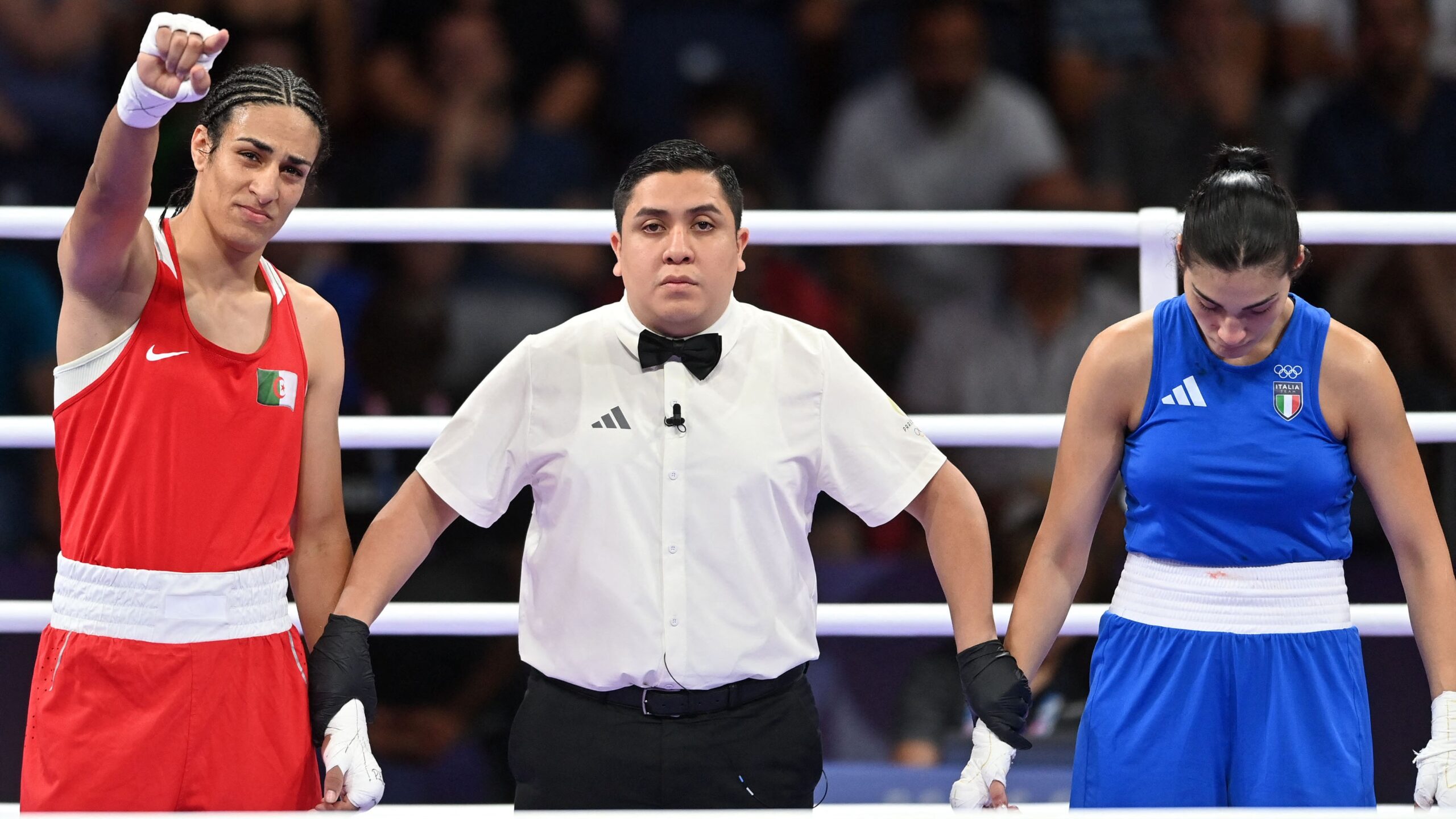Zsolt Gyulay, President of the Hungarian Olympic Committee (HOC), has called for urgent discussions with the International Olympic Committee’s (IOC) Director of Sport. The issue revolves around the presence of Imane Khelif, an Algerian boxer with a masculine appearance, in the women’s boxing quarterfinals at the Paris Olympics. Hungarian Conservative has reported this morning in detail on the issues with Khelif being in the competition. The HOC is also seeking consultations with the Italian National Olympic Committee and other relevant national Olympic committees, as Khelif defeated an Italian opponent in the round of 16 in a one-sided match, leading to the Italian’s surrender after only 40 seconds, and is scheduled to box against Hungary’s Luca Hámori.
The HOC emphasized in its statement that while it respects the IOC’s rules, it stands firmly for gender equality and fair competition for female athletes. The committee reiterated its commitment to protecting the rights and interests of Hungarian Olympians,
continuously examining legal avenues to ensure Luca Hámori’s right to a fair competition.
The HOC’s position is that gender equality in women’s sports cannot be limited to an equal number of participants from both genders at the Olympics. The committee insists that female competitors must be biologically female, defined unequivocally as having female biological characteristics.
The IOC defended Khelif and another athlete, Lin Yu-ting of Taiwan, stating that both athletes faced unjust aggression from the International Boxing Association (IBA) last year, which included allegations of having XY chromosomes typical of males. The IOC underscored that all athletes competing at the Games meet the necessary eligibility criteria, based on rules applied since the Tokyo 2021 Olympics.
The controversy has sparked considerable outcry, with Bence Rétvári, Vice President of the Christian Democratic People’s Party (KDNP) and a member of the Hungarian National Assembly, expressing his concern on social media. Rétvári criticized what he described as a ‘liberal gender rights trick’ allowing a ‘genetically male’ boxer to compete against women. He argued that this situation illustrates the dangers of allowing individuals with male genetic attributes to compete in women’s sports, highlighting the physical differences between genders.
Rétvári Bence
Híres vagy hírhedt lesz a párizsi olimpia❓Most nem a szervezési problémákra gondolok elsősorban, hanem arra, hogy a botrányos jelenettel keresztényellenes provokációvá alacsonyított nyitóünnepség…
Rétvári emphasized that the law cannot change genetic realities and criticized the current rules for undermining the dignity and opportunities of female athletes. He questioned whether the goal of progressive liberals is to enable ‘genetic males’ to exploit their physical advantages in sports, thus defeating female competitors. He maintained that while lifestyle choices are private matters, sports should ensure fair competition by segregating participants based on biological sex.
The controversy surrounding Khelif’s participation has not only ignited debate in Hungary but also drawn international attention, with many–including Elon Musk and JK Rowling–expressing support for Luca Hámori, who is set to compete in the quarterfinals. The situation has raised broader questions about fairness in sports and the potential impact of gender identity policies on competition. As Hámori prepares to face Khelif, the debate over the inclusion of transgender and intersex athletes in sports continues to be a contentious and evolving issue.
Read our article about the controversy:








